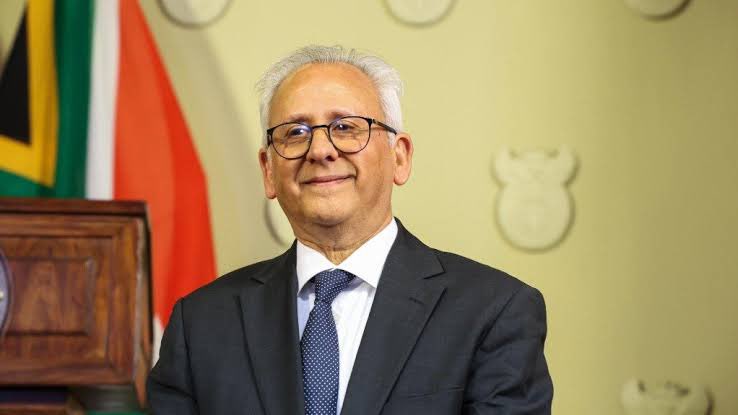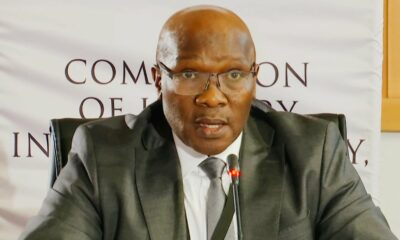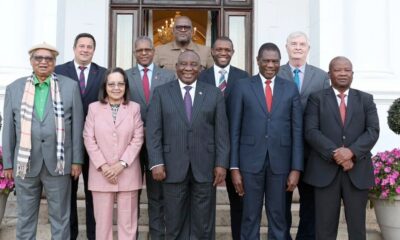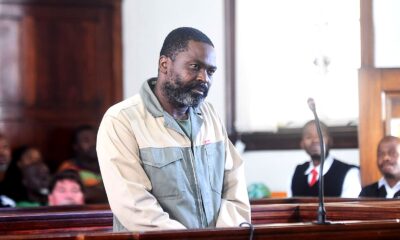News
Firoz Cachalia steps into the storm: The challenges facing South Africa’s acting police minister

When Professor Firoz Cachalia took office as South Africa’s acting Minister of Police just over a month ago, he inherited more than a portfolio, he walked straight into a storm. From violent flare-ups on the Cape Flats to political mudslinging and a police service in crisis, Cachalia finds himself under intense scrutiny before he’s even had a chance to settle in.
A ministry under the microscope
Public trust in the South African Police Service (SAPS) is scraping the bottom. Police stations across the country are overwhelmed and detectives are drowning in caseloads with little support. Against this backdrop, Cachalia has already clashed with National Police Commissioner Fannie Masemola over reviving the KwaZulu-Natal Police Killings Task Teaman investigation that carries both political and emotional weight.
The DA wasted no time setting the bar high, with MP Ian Cameron writing to Cachalia on day one: “South Africans are tired of ministers who deliver bold speeches but fail to act. What is needed now is decisive, immediate, and lasting action.” The opposition has tabled a to-do list long enough to fill a policy book.
Meanwhile, the MK Party insists Cachalia’s appointment is unconstitutional, going so far as to challenge it in court. For them, his leadership is tainted by procedural irregularities and linked controversies, including the establishment of the Madlanga Commission of Inquiry into allegations against former police minister Senzo Mchunu.
Crime doesn’t wait for politics
As if politics weren’t enough, Cachalia must contend with violence on the ground. A recent wave of shootings on the Cape Flats claimed more than 30 lives in weeks, sparking fear and anger among communities already weary of gang wars. For many residents, promises of safer streets have become empty refrains from Pretoria.
Cachalia also took South Africa’s case to the INTERPOL African Regional Conference, warning of the dangers of transnational organised crime. But critics argue that international speeches mean little when local residents are too afraid to let their children play outside.
From anti-corruption council to police ministry
Cachalia is no stranger to governance. Before this appointment, he chaired the National Anti-Corruption Advisory Council (NACAC), a body created by President Cyril Ramaphosa in 2022. The council’s close-out report, submitted just weeks ago, recommends establishing a permanent, independent anti-corruption body.
Supporters argue that this background gives him credibility in fighting institutional rot. Political analyst Professor Sipho Seepe notes: “As somebody who has been part of NACAC, he comes in informed. As a former MEC, he understands government protocols and how the machinery of the state works.”
Yet not everyone is convinced. Some warn that his NACAC past could blur the lines between policymaking and policing, potentially creating new political battles.
The weight of expectations
Cachalia’s new role is both the most critical and the most scrutinised. Without a functional police service, South Africa’s already fragile criminal justice system risks collapse. As one analyst put it, “Police are to public safety what nurses are to healthcare, without them, everything crumbles.”
But there’s a deeper challenge too: perception. Acting ministers are often seen as placeholders rather than power-brokers. That can make it harder for them to be taken seriously inside their departments. Then again, some argue it could be his advantage: a temporary figure might take risks that entrenched ministers would avoid.
Walking a tightrope
Political analyst Nkosikhulule Nyembezi captures the paradox: “Modern politicians like Cachalia operate in an unforgiving culture of corruption and maladministration. The public is sceptical of government. Social media amplifies every stumble. But a government in tune with the public mood is not doomed to fail. Cachalia must buy himself the political space to make mistakes, because aiming unerringly at the right goals matters more than being flawless.”
That advice may be easier said than done. The country is restless, crime statistics remain staggering, and the police service is fractured. Cachalia’s tenure may still be measured in weeks, but his every move is already being dissected.
In South Africa’s unforgiving political climate, one month is enough to set the tone. The question now is whether Firoz Cachalia can survive the storm or bend it in his favour
{Source: IOL}
Follow Joburg ETC on Facebook, Twitter , TikTok and Instagram
For more News in Johannesburg, visit joburgetc.com



























